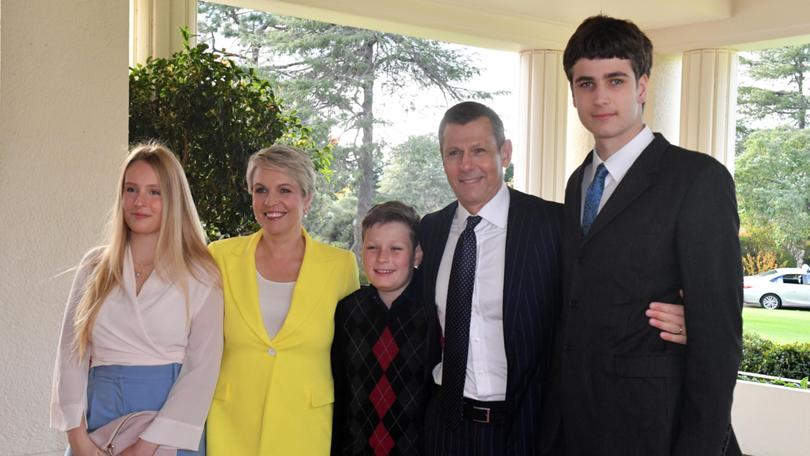TANYA PLIBERSEK: I regret letting my kids have phones as teens and we should ban social media for under 16s
One of the Australian Government’s most powerful women has backed a social media ban for teens and revealed she regrets letting her children access mobile phones at a young age.

One of the Australian Government’s most powerful women has backed a social media ban for teens and revealed she regrets letting her children access mobile phones at a young age.
Labor frontbencher Tanya Plibersek used a speech on Thursday night to launch an excoriating attack on social media companies and the monetised algorithms that tempt young users into the vilest zones of the misogynistic “manosphere”.
Warning that artificial intelligence threatens to push an entire generation to take a step back in terms of gender equality, Ms Plibersek drew comparisons between now and the advent of smartphones in 2007 as a pivotal moment for Australian parents.
Sign up to The Nightly's newsletters.
Get the first look at the digital newspaper, curated daily stories and breaking headlines delivered to your inbox.
By continuing you agree to our Terms and Privacy Policy.“We are in this very particular hinge moment in history — when we are in the last moments before we have another huge shift — with the mainstreaming of AI in our lives,” Ms Plibersek said in the Joan Kirner Oration to celebrate Victoria’s first female premier.
“If parents don’t know the half of it now, AI will be even harder for them to cope with and comprehend.”
Amid a growing national debate about whether children should be banned from social media, the Environment Minister and mother of three said that technology use should be given the same safety “guardrails” as other dangerous settings.
“We teach our kids to swim when they can barely walk. We have incredible safety standards around everything from car seats to button batteries because we want to remove any risks to our children’s physical safety,” she will say.
“But when we give a child the use of an iPad or cave into their demands to get a phone or join social media — we do not have the equivalent guardrails.
“Across many apps are laughable barriers: do you have parental permission? Check. Are you over 18? Check. The kids just have to tick a box. And then into the internet they go. They can watch a beheading. Or a murder. They can watch porn. They can watch Andrew Tate or Jordan Peterson.
“They can watch hundreds and hundreds of hours of beauty tutorials or anorexia tips. They can watch anything and everything — all of the time.
“But I reckon I’m not the only one stopping to pause — and ask — should I have pushed back more against the absolute incursion of the internet and particularly social media into our lives?
Steve Jobs and Jonathan Ive designed some of the world’s most desirable tech — but imposed strict limits on their own children using it.
“Should I have pushed back harder against my children’s use of social media? And is it too late to push back now? My children are now aged 13, 19 and 23 — but lately I have found myself wondering if I should have restricted their use of social media until they turned 16?”
Setting a hard age limit for social media use would make it far easier for parents and safer for children, she said.
“It would be much easier as a parent, if we broadly agreed on the right age for our children to engage with social media. No more kids telling you that you are ruining their lives and wrecking their friendships because they are the only ones not allowed to use Snapchat,” she will say.
“Increasingly the neuroscience is telling us that children’s developing brains are not adequately equipped for virtual life. We need to get them settled into actual life before we even start to think about introducing them to the virtual world.”
Ms Plibersek leveled special criticism at the tech company founders who themselves recognised the harmful potential of their creations.
“There is something sinister in the fact that the people that invented and turbo-charged these systems — the coders and the venture capitalists — are men, who as they grew up and had families of their own, banned their children from using the very tools that they created,” Ms Plibersek said.
“Steve Jobs and Jonathan Ive designed some of the world’s most desirable tech — but imposed strict limits on their own children using it.
“You can see why I’m starting to believe that this era — the last 20 years or so — will be looked on by future generations with some dismay.
“Did we really give tiny children a portal into a world that we could not see, where forces that we could not control, could undo the work of so much of history’s recent progress?”

